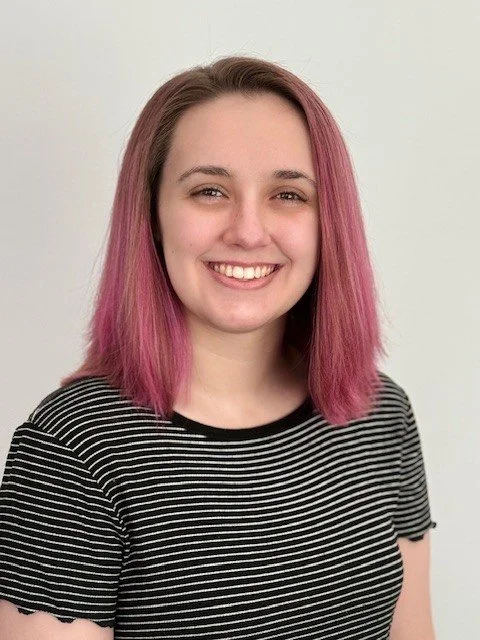if she knew how to be honest with her therapist
by Amber Budd
She thinks it is such a shame that chairs cannot swallow people whole.
Usually, she is quite glad for a chance to sit comfortably without getting eaten—well, as much as anyone might actively be glad of such a thing. But today (particularly, this exact moment) is no such day.
The disappointing chair in question is not that remarkable. A flattened seat that, after several years and hundreds of clients planting their weight on it, no longer lives up to its former glory. A shadow of what it was before: a lovely leather seat meant to look fancier than the price tag betrays. Her hour-long sessions in this chair always leave her sore and stiff.
Across from her (in a seat far less emaciated), sits a man. Crisp shirt, slim-frame glasses. Pressed pants, dress shoes. One leg crossed over the other, a clipboard in one hand. She never thought that a man this put together could be real, and yet there he sits. She’s wringing her already wrinkled shirt—folding, bending, tying—making the perfect cocoon for shadows of her own.
Now would be a great time for the chair to swallow her. But when does she ever get what she wants?
“So, tell me. How’s your week been? Anything you want to talk about?”
A half-dozen shadows stretch out from her shoulders and knees, a few even daring to grow from the space in her toes. The man’s eyes never leave her face, the pencil in his other hand never divulging an ounce of fear or confusion. Long ago, she concluded that he either couldn’t see the shadows or chose to ignore them. The former seemed more logical, but she had never been able to read the man as well as he read her.
Slowly, she inches one hand sideways until it touches the edges of the nearest shadow. It’s a large one, vaguely human-shaped with ratted hair: the shadow mimes gripping its skull and yanking the strands outward, as usual.
“Oh, you know.” She draws out the “know” so long that it becomes less of a word and more like a stick of caramel being pulled out of her mouth in a long string, all sickly sweet and pacifying. “Same old, same old. Keeping busy, piddlin’ around. Not much to do in this heat, is there?”
The man nods. She fists the shadow, dragging it to her lap where she folds it over and over before stuffing the origami’d darkness into the wad of her shirt. Manageable.
“I don’t think I’ve ever asked you about your future.” He hadn’t. “What are your goals for your life, beyond a career? Marriage, children, something else?”
A smaller shadow this time. It might have been humanoid once, but now it was nothing more than a left hand hovering over her own, it’s fourth finger missing.
“Not really for me. Sick girls don’t get dates, and bad genetics mean no kids. But it’s fine. I’ve known this for a while.”
The shadow hand jabs her knuckle.
She folds it the same as the other, tucks it away beside its companion.
“Well, what about a career? I’m afraid you’re worrying about the future and not living in the moment.”
“I don’t know.”
The largest of the shadows rears its head—metaphorically. It has no head, no face, no limbs. Or any shape, really. It’s merely an amorphous blob wrapping around her legs, torso, and up to her neck like an unruly scarf.
“I mean, I think I know. But who can predict what will happen? I’m just taking it in stride.”
“That’s a good mindset.”
The blob shadow was once the hardest to gather, but she has since learned how to twirl it up like spaghetti and let it tangle all the others within the knot of her shirt.
“I try.”
Gathering up the shadows has become her weekly routine. She knows the motions: when he asks if she is still having “the dreams,” if she’s obsessing over her lack of independence (a medical consequence, seemingly permanent), or wonders why she struggles to leave the house, she grabs the corresponding shadow and folds it up, nice and neat. One, two, three, four folds. Then the shadow’s shrunk into a square and hidden under swaths of fabric.
He tells her that she’s doing great, but was she feeling anxious? She was wringing her hands a lot.
“No, no,” she responds. Autism—she just can’t sit still.
He smiles.
She walks out the door.
If she knew how to be honest with her therapist, she wouldn’t drop her bundle of shadows at the edge of the sidewalk, like how a mother might leave an infant at a convent.
If she knew how to be honest with her therapist, they wouldn’t untangle themselves from each other while she lingers in the parking lot.
If she knew how to be honest with her therapist, they wouldn’t follow her, dragging at a safe distance from the thumping bass and minor chords blasting out of her lowered window before melding back into her as she walks through her front door.
If she knew how to be honest with her therapist, she might be rid of the shadows forever. Or at least, for a little while.
But when does she ever get what she wants?
Photo of Amber Budd
BIO: Amber Budd holds an AFA and BA in Creative Writing, and will begin her MFA in Writing in the fall of ’25. Her short fiction and poetry have been published in Arrow Rock Literary Journal, FLARE Magazine, Mid Rivers Review, as well as other places. She currently works as a reader for Fractured Lit and serves as the editor-in-chief for the magazine she founded, The Orange Rose Literary Magazine. You can find her on Instagram @amberbuddwrites and follow her book review blog at amberbuddauthor.com.
